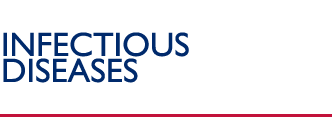USAID's Key Achievements
| |
 |
| |
Source: Kirill Burimski, 2005 |
Zambia and Ethiopia implement nationwide initiatives.
A package of USAID-supported interventions in Zambia included revised treatment standards and guidelines, local media approaches, a strengthened AMR curriculum for health professionals, and improved quality assurance of medicines. In Ethiopia, the focus was mainly on
improving and expanding hospital drug use through training and supervision.
Regional initiative helps improve drug practices in Peru.
USAID partners in the South America Infectious Disease Initiative identified poor storage conditions and inventory management as factors contributing to AMR in Callao, Peru. Because of improvements in local warehousing and inventory management, the warehouse receiving assistance was certified for good storage practices, and procedures developed through the activity provided
a model for other regional warehouses. Initiative partners also identified irrational drug use as an important contributing factor to AMR, and USAID helped develop and disseminate standard treatment guidelines (STGs) to support good prescribing practices.
Training promotes appropriate pharmaceutical management.
USAID supported training in medicine selection and use for more than 400 health professionals from Africa, Asia, the Caribbean, and Latin America. The training prepared participants to carry out such activities as drug use evaluations, formulary management,
development of treatment guidelines, and, through a training-of-trainers component, their own training of hospital drug and therapeutics committees (figure 7). Participating countries included Kenya, Rwanda, Malaysia, Zambia, Sri Lanka, Mongolia, China, and Ethiopia.
USAID helps countries improve quality of medicines.
USAID supported the development of Ensuring the Quality of Medicines in Resource-Limited Countries: An Operational Guide, which provides guidance on how to strengthen quality assurance systems in developing countries. In Bolivia, Guyana, Madagascar, and many other
countries, USAID provided support for national quality control laboratories. In Bolivia, Paraguay, and Peru, USAID helped strengthen post-marketing surveillance and supported analysis of more than 150 samples of TB medicines and other antibiotics.
Two USAID guides support AMR programs.
To facilitate AMR advocacy and containment programs, USAID developed two guides that help countries implement WHO recommendations at the country level: Building Local Coalitions for Containing Drug Resistance: A Guide and Containing Antimicrobial Resistance: Guide for USAID Missions to Promote Institution-Based Interventions.
The guides provide tools and approaches for developing and implementing AMR containment strategies.
|


